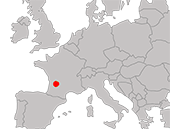Last articles
Download the PDF >![]() < Preview the PDF
< Preview the PDF
Learn how stingless bees quietly sustain Amazonian forests — and how a new law is changing what happens when they’re harmed.
You might think honeybees are thriving – after all, the honey industry is growing and its bees are well looked after by beekeepers. But not all honeybees live in hives.
This staternent gives the scientific background and concepts on why this mode of production leads to a violation of the definition of honey. Different strategies for the detection of this mode of honey fraud are discussed.
This publication explores the roles pesticides may play in bee health, examines the latest knowledge in this fast-developing field of research, and discusses the regulatory effort to determine the risk of pesticides to honey bees and other pollinators.
Using data from a USDA survey of beekeepers, this report quantifies honey bee colony movements over the four seasons and provides a basis for understanding how the transport of honey bee colonies affects pollination services.
Today, the many threats to honey bee health — including parasites, pests, disease, pesticides, and inadequate nutrition — make achieving this goal a major challenge.
Recent advances in Internet of Things (IoT) and Tiny Machine Learning (TinyML) enable low-power, real-time monitoring directly on edge devices, offering scalable and non-invasive alternatives.
In this article we examine the factors, which provide suppression of the development of Varroa mites population in a honey bee hive, at temperatures below critical for mites.
Ascopherosis, Aspergillus and other fungal diseases of bees and brood are not only difficult to cure diseases, but also have a high degree of danger to humans.
Oxalic acid is a very effective active substance against Varroa mites if applied in the absence of brood and with sufficient humidity in the hive.
Effective control of them, based on knowledge of the characteristics of their life and reproduction, can lead to the suppression of the uncontrolled development of the Tropilaelaps mite population in honey bee families.
The well-known method of thermal action on Varroa mites has proven itself more or less successfully only in thermal chambers.
This work will take a few weeks, thank you for your understanding and patience.






























